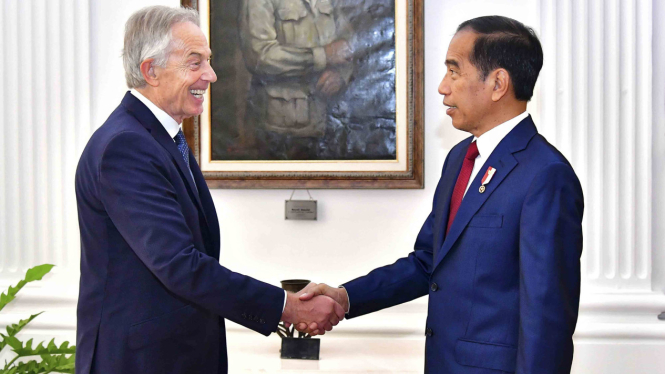VIVAnews - Unbelievers in capitalism and markets have been quick to pour scorn on both as the global financial crisis rapidly worsens, often focusing on the tendency of the private sector to operate according to herd instinct. If there are signs of a possible collapse in asset prices—whether this refers to shares, real estate, or foreign exchange—then as soon as a few investors start to run, everybody runs, and chaos ensues.In the present episode, however, it seems to me that the herd instinct has taken over the government sector—specifically, central banks, treasuries and ministries of finance, prime ministers and presidents.
Listening to the barrage of self-justification of the policies of these institutions and individuals around the world one cannot help but be struck by the uniformity of it all. Everybody is doing the same thing, for the same reason. They are following the herd, taking comfort in the fact that they are not alone. How could their policies be wrong, when every country seems to be following those same policies? But I guess that’s just what happened in the early months of the Great Depression.
In Indonesia and Australia it is striking that even though both economies had been performing quite well in recent times, both countries’ governments have felt obliged to step in with massive and highly distorting policy interventions in anticipation of the calamity they believe is just around the corner. This is not sound policy. On the contrary: it seems almost inevitably to convince people a crisis is about to unfold, when in fact there need not be one. And the natural instinct of the private sector then is to pull back from new spending, which precipitates the very outcome we all seek to avoid.
In relation to monetary policy, both countries had been firmly wedded for some time to the policy of announcing and sticking to their policy rates of interest. In Australia’s case, the central bank has recently implemented a huge 1% cut in its policy rate, and it seems to be signalling that further cuts are soon to follow. In Indonesia, the central bank has not changed its policy rate, but has nevertheless taken steps to increase liquidity significantly (as though liquidity were unrelated to interest rates). Why?
If liquidity is about to dry up, as feared by both central banks, interest rates will immediately begin to rise. That would be the appropriate time to take action: not by changing the interest rate, but by supporting it at the previously announced target level. What this would mean in practice is that the authorities would need to cut back on issuing securities such as SBIs (Bank Indonesia Certificates) and government bonds. There is no need to change policy, only to persevere with the policy already announced. Maintaining liquidity in the face of a shock to the system is one thing; flooding it with extra liquidity is quite another.
It seems that governments are choosing policies on the basis of what they perceive the markets want them to do: the markets need to be pacified. Unfortunately, however, there is ample evidence from past experience to suggest that governments have very little ability to keep markets happy. Thus the boisterously positive initial responses from the markets when these big policy changes have been announced have been dramatically reversed on the very next day. Playing to the markets, rather than getting the fundamentals right, is a fool’s errand.
The markets in Indonesia are now beginning to behave as though they think the authorities have lost the plot. Inflation is high, share prices are falling, and exchange rates are depreciating—just what we would expect to see when monetary policy is significantly loosened. And all of this is driven by wishful thinking: the notion that people and firms can be persuaded to maintain or resume their spending simply by making money cheaper. It doesn’t work that way. Unless they can be persuaded that the future is actually bright, they will simply take the extra funds injected to the system and use them for speculation—not on newly produced capital goods, but on financial assets such as foreign securities, and safe commodities such as precious metals.
* Dr. Ross McLeod has been working in and on Indonesia in various capacities — postgraduate student, consultant and academic researcher — since 1978, and speaks Indonesian fluently. Since 1998 he has been the Editor of the Bulletin of Indonesian Economic Studies. This analysis was originally published on ANU Indonesia Project blog, to which Dr. McLeod regularly contributes to.


















